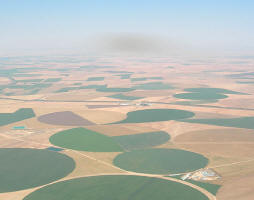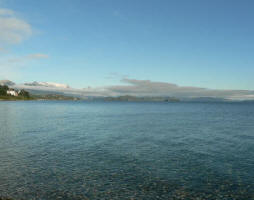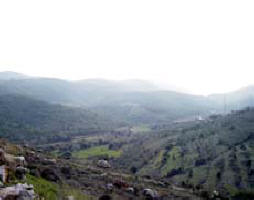 Libya, Tripoli: water supply resumed as rebels regain control of the Great Man-Made River Project
Libya, Tripoli: water supply resumed as rebels regain control of the Great Man-Made River Project
More than a week after the taps had run dry, water supplies to the Libyan capital Tripoli resumed on 6 September [1]. This was two days after the rebels said they had taken control of the Great Man-Made River (GMMR) Project, which provides 6.5 million cubic metres of water a day to the cities of Tripoli, Benghazi, Sirte and elsewhere [2].
Senior officials of the rebels’ interim government earlier accused Gaddafi loyalists of destroying water pumps and attacking water engineers trying to restart pumping stations [2]. Aid agency sources said pro-Gaddafi forces in Sirte had cut off the water supply to Tripoli [1].
A human rights group condemned the bombing by NATO on 22 July 2011 of a pipe factory in Brega, which serviced the water supply system of the GMMR Project. NATO claimed that Gaddafi forces were using the factory as a base for rocket launchers [3].
During the water outage in Tripoli, the World Food Programme (WFP) partnered with UNICEF to distribute bottled water via hundreds of mosques in the city [4]. New supplies of bottled water are partly being diverted to Misrata where a contingency stock is being set up for distribution in Bani Walid and Sirte once the fighting there stops [5].
South Korea said it was sending a team of water engineers to Libya help restore water supply services that were sabotaged by retreating Gaddafi forces [6]. Companies from South Korea and other countries including USA, Turkey, UK, Japan and Germany, had been awarded lucrative contracts to work on the Great Man-Made River Project which began in 1994 [7,8].
Called the largest civil engineering venture in the world, the GMMR Project was one of Gaddafi’s most prized projects attracting international attention. UNESCO in 1999 accepted Libya’s offer to fund an award named after it, the Great Man-Made River International Water Prize (last awarded in 2009). Funded from oil revenues, the project provided water free of charge to Libyan consumers [7].
Many of the Libyans who have worked on the project were trained in The Netherlands at Delft University of Technology and at the UNESCO-IHE Institute for Water Education [9].
The cost of the GMMR project to date are often quoted to be US$ 25 billion but an official in the GMMR Authority in Benghazi, Abdussalam Jehawi, said this figure was exaggerated. The total cost since the start in 1984, he claims, has been about US$ 9.2 billion with another US$ 3.4b billion planned to be spent for the completion of phase three [10].
Nevertheless, the project cost more than it should have because engineers were abruptly told in the middle of planning in the 1980s for the second phase to go around a huge tract of the desert known as Rabta, where Col Qaddafi was building a chemical weapons plant known as “Pharma 150″, Mr Jehawi said [10].
There has been speculation that Gaddafi has used GMMR pipelines as an escape route. Engineers who worked on the GMMR project during the 1990s say it was large enough to carry military vehicles down its entire length [11, 12].
[1] Water supplies resume in Libyan capital, Reuters / ArabNews.com, 05 Sep 2011,
[2] Water back on in parts of Tripoli: Libyan official, AP / Gulfnews, 05 Sep 2011
[3] NATO bombs the Great Man-Made River, HRI, 27 Jul 2011
[4] WFP and UNICEF partner to deliver vital humanitarian assistance to Libya, UNICEF, 05 Sep 2011
[5] OCHA, Libyan Arab Jamahiriya Crisis – Situation Report No. 56, 11 Sep 2011
[6] S. Korea to send water engineers to Libya this week, Yonhap, 06 Sep 2011
[7] Frances Thomas, The GMMR Project: Libya’s achievement and NATO as war criminal party-pooper, OpEdNews, 01 Sep 2011
[8] Wikipedia – Great Manmade River
[9] Jannie Schipper, Harvesting Libya’s hidden water with Holland’s help, RNW, 01 Sep 2011
[10]Bradley Hope, Libya needs water despite Qaddafi’s Great Manmade River, UPI, 29 Aug 2011
[11] Martin Chulov and Peter Walker, Gaddafi sons face last stand in Libya, Guardian, 01 Sep 2011
[12] Libya: what role for Great Man-Made River Project in conflict?, WASH news Middle East & North Africa, 11 May 2011
| Contact information | n/a |
|---|---|
| News type | Inbrief |
| File link |
http://www.youtube.com/watch?v=qogT-DDKHgQ&feature=player_embedded |
| Source of information | WASH news Middle East & North Africa |
| Subject(s) | HYDRAULICS - HYDROLOGY , POLICY-WATER POLICY AND WATER MANAGEMENT |
| Geographical coverage | Libya, |
| News date | 19/09/2011 |
| Working language(s) | ENGLISH |
 you are not logged in
you are not logged in





